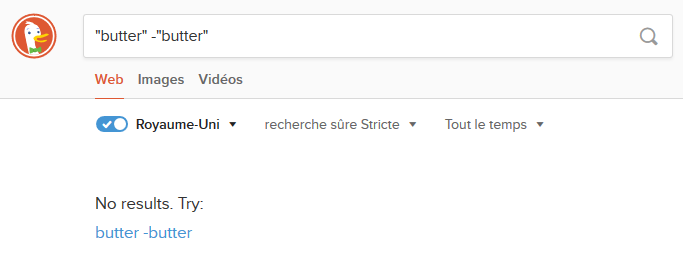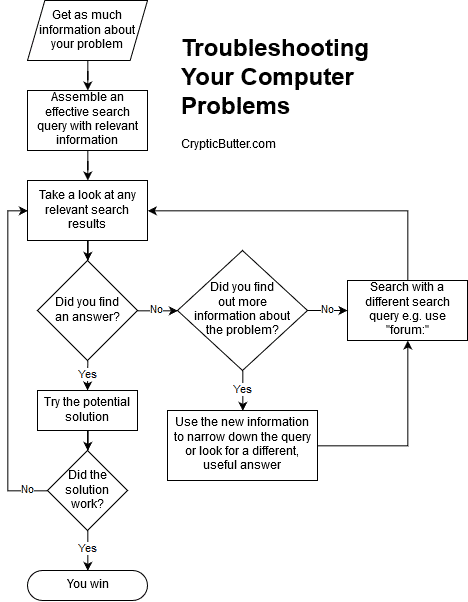insert_linkAre You Struggling to Find the Answers You Need?
We’ve all been in this terrifying situation: you’re searching for that nugget of information on the Internet. But nothing happens. In order to resolve our problems, it’s crucial we learn the best way to search the Internet—now.
With these search engine tips and tricks, you will always be one step ahead of the competition.

Search engines are a powerful tool, and there aren’t any questions surrounding that. Although, there does arise the question, do you know how to use search engines effectively? Effective utilisation of search engines invariably results in the best way to search the Internet, after all.
In fact, the chances are that there is an answer to your callings somewhere out there. “There” is a rather large place, however. So, to combat this we must narrow down our search results, increasing the likelihood of finding that buttery result.
Having said that, there should be no reason for you not to follow along; once you learn the secrets of the best way to search the Internet, there’s no going back. I guarantee it.
insert_link1: Zipping to Target Websites Effortlessly
Let us begin with how you would narrow down to a specific website using a search engine. Perhaps you want to use the search engine of a target website that isn’t your primary search engine.
For example, what if I told you that you could search Amazon with a single search query in your address bar? Despite what this may seem at first, this trick really isn’t difficult to pull off. What’s more, there are multiple ways of going about this and taking advantage of the best way to search the Internet.
insert_linkThe Single Best Way to Search the Internet—No Doubt
If there’s only one thing you take away from this helpful article, let it be this tip. And this tip happens to involve the best search engine.
“But what is ‘the best search engine’?”
Well, let me tell you there, Jim, the truth that has been passed down through many a generation…

DuckDuckGo.
Indeed, the duck—Dax the Duck—is our true saviour; we have been blessed with the best way to search the Internet.
DuckDuckGo is the perfect search engine due to its commitment to privacy. To explain, unlike Google, DuckDuckGo doesn’t sell your data or track you.
Now, of course, this indispensable quality will not exactly help you get the results you need. (Though the results aren’t personalised based on your usage.) As a matter of fact, DuckDuckGo offers something truly unique called “bangs”.
Get Even More Privacy Tips: Ultimate Checklist for the Best Initial Windows 10 Setup 2018
“Okay… that sounds great I suppose… but what in this uncorrupted world is a ‘Bang’?”
I know right? Bangs allow you to effortlessly search another site—and this is done directly from DuckDuckGo. Hence, there is no requirement to first navigate to your desired site via an additional search, bookmark, or by typing out the website’s full address.
Furthermore, when your search with a bang in DuckDuckGo, you are redirected to your target site’s search results.
With this in mind, I’m sure you’re itching to know this way to search the Internet effectively…
insert_linkHow to Use DuckDuckGo Bangs for Productivity and Speed
First and foremost, you must precede your search with an exclamation mark ("!"). Subsequently, you can type the letter(s) that identify your website, such as “a” for Amazon, or “ox” for Oxford Dictionaries.
To find a website’s Bang, you can use the DuckDuckGo search suggestions or search for a Bang with the Bang !bang. However, if you’re unfortunate enough that your Bang certainly doesn’t exist, fill out this form to make a suggestion. Alternatively, you could read on to the alternative to Bangs.
Next, having found your Bang, proceed it with your search query. For instance, the final result might look like !w elon musk which immediately directs you to Elon Musk’s Wikipedia page.
Furthermore, you could simply type a Bang alone (e.g. !w) to go to the associated website’s homepage. You will therefore never need to type out the entire website’s address again. For this reason, Bangs are undeniably the best way to search the Internet productively—with speed.
You can also use these bangs in your search/address bar of your browser. Albeit, this assumes you have set the default search engine to the best one.

insert_linkThe Alternative: Using Your Browser’s Search Shortcuts
On the other hand of things, you may want to use your own custom triggers for searching specific websites. Going about this is inevitably going to vary between browser, though the process should be similar. If not, you can always use DuckDuckGo to search for the answers.
In Firefox (the best browser which additionally constitutes the best way to search the Internet), here is the process:
1. Navigate to the website page with the search field you want to search with.
2. Right-click (secondary-click) on the search field and select “Add a Keyword for this Search…”.
3. In the dialogue box, give the shortcut a name and a location in your bookmarks. I recommend saving your search shortcuts to a dedicated folder within “Other Bookmarks” since you won’t need to access them.
4. Give the shortcuts a keyword. This is what you precede a search in your browser’s search bar in order to search the target website.
5. Click the Save button and search your website by typing into the search bar: the keyword, a space, and the query.
insert_link2: Use Advanced Search and Look Cool
To be completely transparent with you all, I’m really good at parties. I walked into a party one time, uninvited, hence nobody knew me. Nevertheless, I persisted to be that person everybody loves to be with.
By now, I hear you asking, how did I manage to look cool in front of all these strangers? In truth, I told everybody that I had insane skills with search engines.
I knew the best way to search the Internet.
This involved knowing about advanced search functions, in other words, black magic. Did you know that you could use search operators to refine your search? Oh, butter!
Sounds sweet-tasting, but what exactly can we do with advanced searches? Behold some examples:
- Limit results to those containing specific words or phrases.
- Exclude words or phrases from your search results.
- Combine separate searches into one set of results.
- Search pages of a specific website.
- Search for unknown words in your search query.
By merely introducing some syntax to your search result, you can vastly decrease the time it takes for you to get your answer. This is an extremely powerful tool, as long as you can use it wisely.
insert_linkThe Best Way to Search the Internet for Cool Professionals

The complete list of Google’s search operators can be found here. Also, note that these operators can be used on other search engines (such as the best one—DuckDuckGo).
Although, this might be a layer of butter too much for you to remember. Therefore, you can use the Google Advanced Search thing which requires absolutely no crazy syntax. It is conversely straightforward like we all like things to be, albeit at the compromise of speed.
Don’t do that, in spite of me presenting Google Advanced Search as a feasible option; impress me instead. Use StartPage—the other privacy-committed, tracker-free search engine.
(By the way, you can access StartPage using the DuckDuckGo Bang: !sp)
StartPage provides you with the results no worse than Google, whilst supporting advanced search features. Thus, I can say that the best way to search the Internet, for you, could be to bookmark this page.
You will see StartPage’s advanced search has many of Google’s offerings, but with free privacy included.
I think we can conclude that if you need refined searches, advanced searches are the best way to search the Internet.
insert_link3: Get Instant Answers with DuckDuckHack
I bet a parrot to a penny that you’ve not heard of this search engine hack. Funnily enough, we’ve already established the superiority of DuckDuckGo despite not even covering everything.
I would firstly like to mention that, in addition to a list of results, DuckDuckGo shows any relevant spicy content. For example, you might see information (e.g. a Wikipedia article), news, forum responses, videos, images, et cetera. This is not unique to DuckDuckGo, however.
But what is unique to DuckDuckGo is DuckDuckHack, which allows developers to create instant answers to certain queries. Thus, you get an answer faster—instantaneously, in fact.
Below are a few buttery examples of search queries you can use to increase your productivity. Try them out!
- calories in butter
- rand 5 83 (random number between 5 and 83)
- sqrt (4 + 8 * 2) ^ 4 (use DuckDuckGo as your calculator)
- random name
- timer 20m
- stopwatch
- 2048
- compute integral of x2 dx
- solve expand 2(a+b)2
- pounds in kilogram
- gbp to indian rupees
- 1 btc

I could go on forever, which emphasises the sheer volume of potential instant answers. If you want to see all of the live instant answers, visit this page.
The moral of the story, I suppose, is that everyone should use DuckDuckGo because users will receive innumerable pleasant surprises.
insert_link4: Keep It Simple, Stupid
Okay, we’ve covered super-advanced searches, Bangs, and DuckDuckGo’s convenient answers. As a result, we are left with the more basic strategies for optimising your search. I am alluding to the way you structure your search query.
insert_linkHow Google Search Works
Before we push further into structuring our queries, let us understand how search engines like Google work.
Google’s search algorithm is keyword-based: each word in the query is processed individually. Accordingly, pages are ranked based on how many of each word they contain.
This could result in a very broad range of search results if you have too many keywords in your search. Not to mention, it is for this reason that the order of the words in a query doesn’t matter. Also keep in mind that punctuation does not really affect your search, unless, that is, it is being interpreted as an advanced search operator. Forget capitalisation, too.
Additionally, Google will provide results based on keywords similar to those you gave, hence why it will virtually never fail to show a result without advanced trickery.
As a matter of fact, this is why using speech marks for finding exact matches for words or whole phrases is a thing. You are able to narrow your search results to the more relevant ones thanks to advanced search notation.
The black magic of advanced search is not the only way of overcoming the search engine algorithms. What’s stopping us from taking out the unnecessary words that don’t add to our query?
Well, it turns out that Google does attempt to exclude unnecessary words like “I” and “we” from the search. It is nonetheless critical to not include these words yourself as to not risk a surplus of useless results.
insert_linkPerfectly Constructed Queries—The Best Way to Search the Internet?
Now we have the ingredients, such that we are only waiting to bake that rhubarb cake. It just so happens that my imaginary iPhone continually explodes, and I want to fix that. Take this query, for example:

This is not short of appalling; there is indeed a multiverse of pointless and unnecessary words above which don’t help your cause. Let us amend this issue immediately:

As you can clearly see, we are already getting a more bountiful list of results we might want to pay attention to. I think it’s time to have some more fun—introducing advanced search operators:

Since we are now only including results with the term “iPhone”, our results have improved once again.
For my next trick, allow me to ask you, have you used Google before? If so, have you noticed that it shows how many results a search produced? Do a search now with the DuckDuckGo Bang: !g
So, how can you take advantage of this metric? Yes! You’ve guessed correctly, for the number of results indicates the extent to which we have refined our search. A smaller number is evidently better as there is potentially less of that much-hated, useless fluff.
Take a look at an example of how the number of results can change using the aforementioned techniques:

insert_link5: Tips for Finding Answers to Problems
You’re only employing the best way to search the Internet when you know what you are doing. Say, for example, you’re having a problem with your computer or software application. It should be blindingly obvious that you would need to troubleshoot the problem.
Of course, the not-so-obvious part consists of how you would troubleshoot the problem. Luckily, though, you’ve already learned the bulk of search engine tips earlier to help refine search results. Our next step is to know what to do with the results.
insert_linkThe Best Way to Search the Internet for Troubleshooting Tips
Lay your rectangular eyes upon this simple flowchart:

Above, there is an effortless process you can follow to aid you with your troubleshooting needs. In essence, the process involves trying different solutions and finding more information potentially related to your problems; this additional information is then used to construct a new search to see if you have better luck. Next, the process repeats.
Furthermore, you might have noticed the flowchart says something about forum:. This is an advanced search operator you plug into the front of your query to search for forums solely.
Undeniably, forums are one of the most helpful resources on the Internet; in all likelihood, someone’s already had the same problem as you and had it answered on a forum. For example, I frequently find myself using Stack Exchange which is pure amazement.
This is not to say that you should be searching for forums ceaselessly, as you are limiting your potential for answers. However, if a search returns too much useless fluff, you probably should refine your search.
As a note, you will not always find the answer you need in a search. You could, for instance, find a forum thread with some information without a full solution. In this case, you can take on suggestions and additional information to acquire more information about the problem.
The process could entail looking through the programme’s log files for potential errors to search for. If not, you could provide relevant information that might be a factor of the problem like other programmes or settings that might conflict with your programme.
insert_link6: Travel Back in Time: Nothing Can Truly Be Deleted
Do you want to know a little secret? You want to know the most fun and the best way to search the Internet? Deep down, we all want to bypass the infuriating boundaries of time—and now you can do just that.
Meet archive.org. With the “Way Back Machine”, you are given the ability to search for a past version of the website. Here’s the best part: you can navigate and view the contents of that website in the past.
Perhaps, for whatever reason, you need to access a piece of information on a website, but the website removed it. Now you can find that nugget of information from any day that archive.org archived that site.
Let’s investigate Microsoft’s website. The earliest it was archived was in 1996.

insert_linkThe Moral of The Story
Use DuckDuckGo, advanced search techniques, the troubleshooting flowchart, archive.org, and effective search queries. I guarantee that if you can take on board all of these, you’ll win life. Easily.
In addition, why not learn the Windows 10 shortcuts to become super-proficient? It’s very good.


